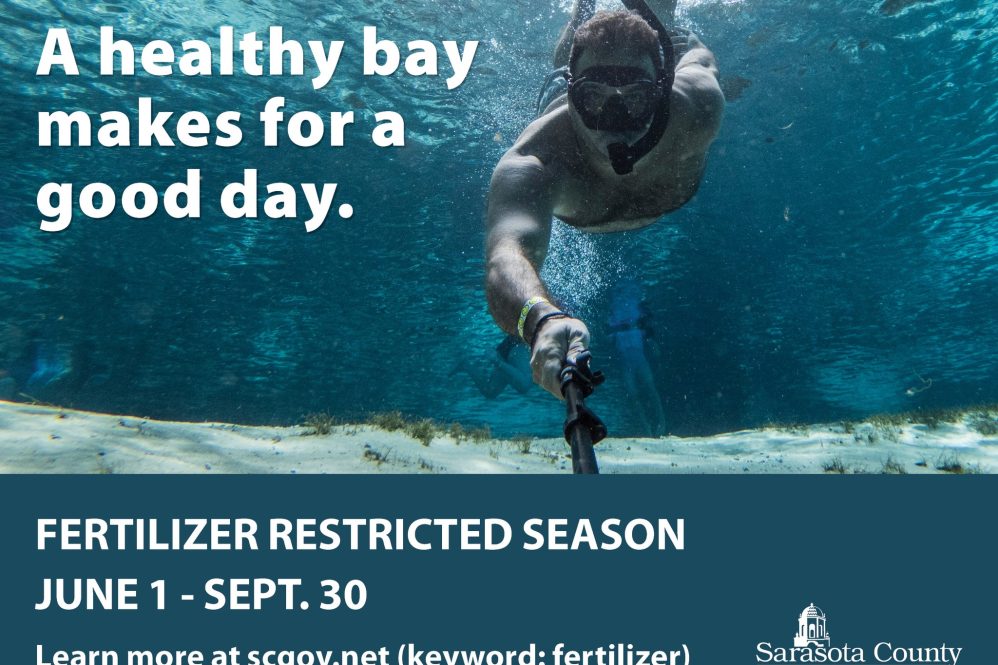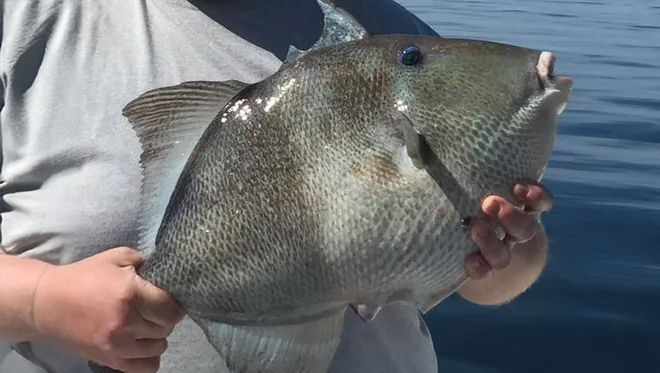As summer rains soak Sarasota County from June through September, local officials are urging residents to help protect water quality by skipping fertilizers and adopting Florida-friendly landscaping practices.
More than 60% of water pollution comes from everyday sources such as leaking motor oil, garden fertilizers, and old, leaking septic systems. When summer downpours arrive, stormwater runoff washes these pollutants—particularly nitrogen and phosphorus—into local creeks, bays, and estuaries. This nutrient-rich runoff fuels harmful algal blooms, which can deplete oxygen, kill aquatic life, and endanger Sarasota’s fragile marine ecosystems.
To combat the problem, Sarasota County enacts a seasonal fertilizer ordinance under the Fertilizer and Landscape Management Code. The regulation prohibits the use of fertilizers containing nitrogen or phosphorus from June 1 through September 30. During the remainder of the year, fertilizers used must contain at least 50% slow-release nitrogen to reduce runoff potential.
“Too many nutrients during the rainy season cause algae to grow faster than the ecosystem can absorb,” said a county environmental spokesperson. “This disrupts the balance of our waterways, harms seagrass, and diminishes water clarity.”
The county recommends simple, eco-friendly alternatives to keep lawns healthy through the summer:
- Use iron-based products with micro-nutrients to keep your lawn green without contributing to runoff.
- Improve your soil with compost to reduce the need for synthetic fertilizers.
- Plant Florida-friendly species that require less maintenance, water, and fertilizer.
- Leave grass clippings on the lawn to naturally return nutrients to the soil—clippings can supply up to 50% of your lawn’s nitrogen needs.
- Mow high to promote root strength and drought resistance.
With summer rainfall accounting for over half the area’s annual precipitation, fertilizer applied during these months is more likely to wash away before benefiting plants, causing harm instead of aid.
By reducing fertilizer use, especially during the wettest part of the year, Sarasota County aims to protect its waterways, preserve wildlife, and support local industries that rely on clean water, such as tourism and fishing.
“Fertilize Less, Enjoy Florida More,” officials remind residents. “Be a part of the pollution solution this summer.” For more information, visit Sarasota County’s Environmental Services or contact the Storm water Environmental Utility.





